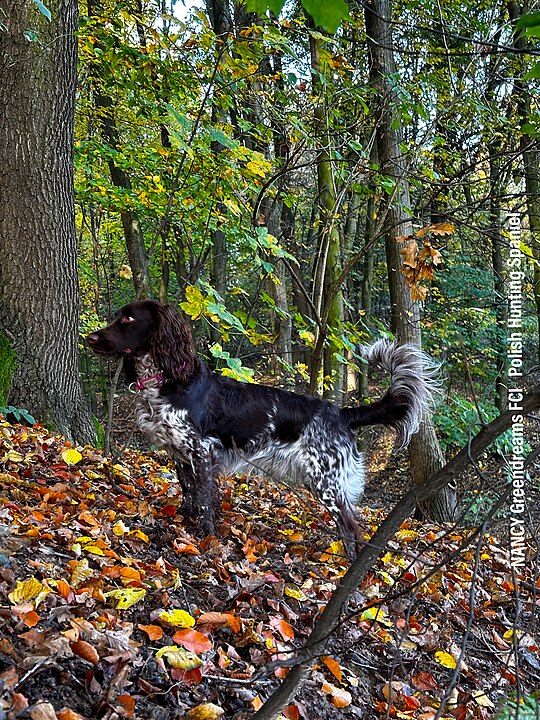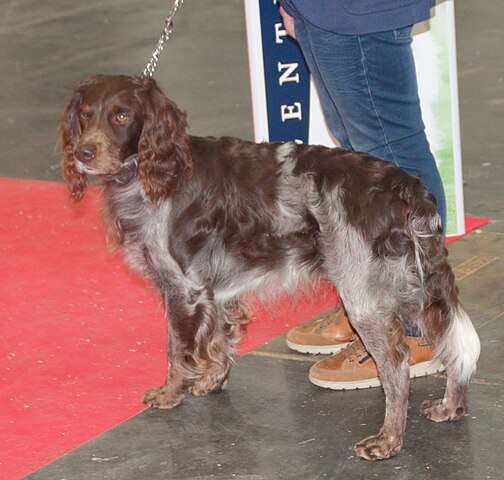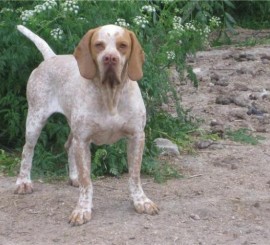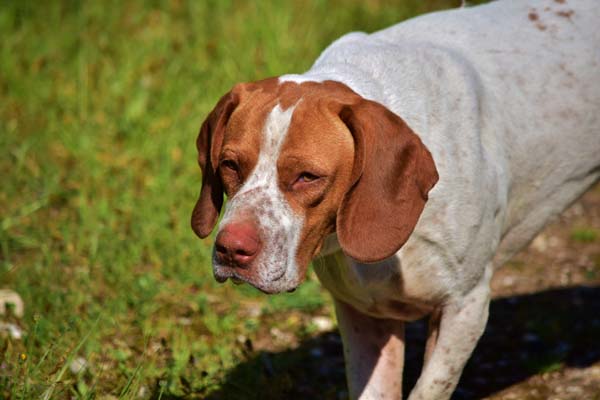The Vizsla is a beautiful, athletic dog that often draws attention wherever he goes. At home, he is cuddly and affectionate with his owner, often following his “people” around from room to room. This trait has earned him the nickname as a velcro dog. He is known to have a “soft” temperament, meaning that he is sensitive and doesn’t do well with people who are loud and intense. This also means that he needs to be socialized extensively from a young age so that he won’t be anxious and phobic of new situations and people when he grows up. All puppies have certain stages when it is critical to socialize them before the window of opportunity is closed forever, but this is especially true for Vizslas.
This breed is active and definitely requires at least an hour of strenuous exercise a day. A short walk is absolutely not enough, nor is it enough just to have a big yard (most dogs won’t just exercise themselves in a yard – many will just lay around). Vizslas need to actually be taken out on a jog or hike with their owners in order to burn off their energy. A bored Vizsla that doesn’t get enough exercise may become destructive in the house. They require this commitment from someone who is active and athletic themselves – these dogs are strong and normally too much for owners that are frail.
This breed is quite intelligent but can take a while to mature fully, sometimes until the age of 4. They may act like puppies for longer than many breeds – which could either be fun or frustrating depending. For the owner that is looking to compete in obedience, they should be aware that they will be working through puppy antics for a while. There is also a stubborn streak in the breed, although easily overcome if the owner or trainer has patience. This said, the Vizsla is usually eager to please and really wants to do right by his owner! As long as the training sessions are kept generally positive – as Vizslas are indeed sensitive to harsh and unfair corrections – they are certainly very trainable.
Grooming is quite an easy task with the Vizsla. Their short, thin coat does shed but is normally not a problem except for the most fastidiously clean people. The breed also prefers being clean and will lick and groom themselves like a cat! Keeping up with nails, cleaning ears, and brushing teeth is about all that needs to be done, as well as a short brushing ever now and again. Baths can be given when needed, but probably won’t be required any more often than every month or two.
The Vizsla is not a guard dog and should never be aggressive, although he may bark at a person he feels may be threatening his family. This breed normally loves people, as well as children. They can be good dogs for families, as long as parents are aware that Vizslas are active, strong and athletic. This means that they may accidentally knock a small child over, or possibly nip if playing ball. This is not aggression… it is the outcome of an exuberant hunting dog. It is recommended that kids be at least 10 years old. The breed also gets along great with other dogs and is normally happy and playful as a member of a multi-dog household.
The Vizsla’s intelligence can be a hinderance as well as a source of amusement. It is not uncommon for them to figure out how to open doors, cupboards, and manage all sorts of other mischief. Vizslas that are left outside for long periods of time may dig holes in the backyard or under a fence. This is most common when they become bored and they decide to invent new games to play! As many of their “games” can actually be frustrating to their owners, it is best to provide them with all sorts of intellectual outlets. Obedience is a great one, as are other dog sports. Even puzzles and games made specifically for dogs can be helpful to keep their minds busy. Many breeders also recommend keeping Vizslas crated when owners are gone to keep them out of trouble, although a well-trained dog is less likely to get into things. Looking for the perfect crate for your Vizsla? Check out the Petmate Vari Kennel to keep them comfortable and secure – https://amzn.to/3B3CUE6
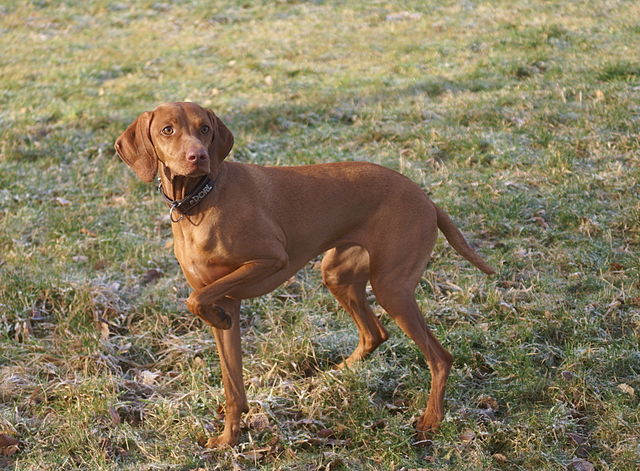
Affiliate Disclaimer
As an Amazon Associate, I earn from qualifying purchases. This means that if you click on an affiliate link on this site and make a purchase, I may earn a small commission at no additional cost to you. Rest assured that I only link to products I have used, or use on a regular basis, and trust enough to recommend them to you!
